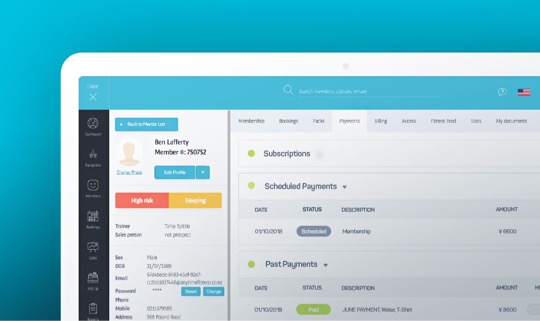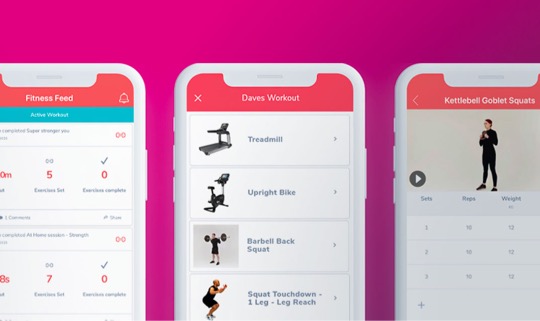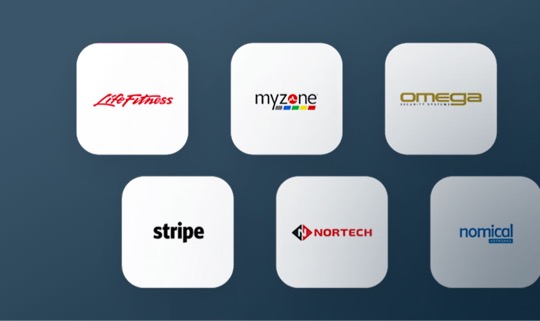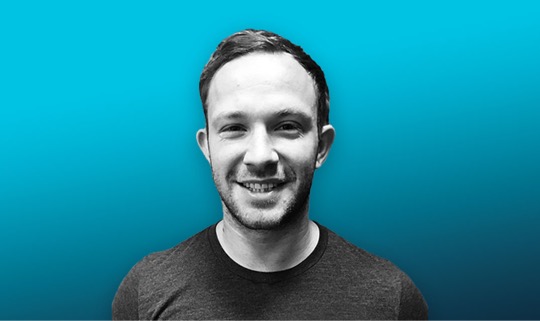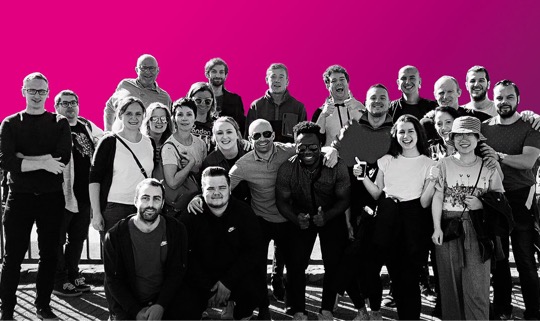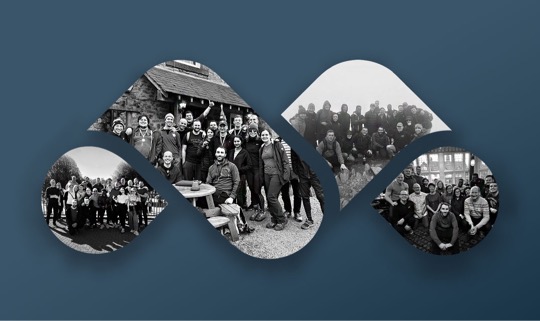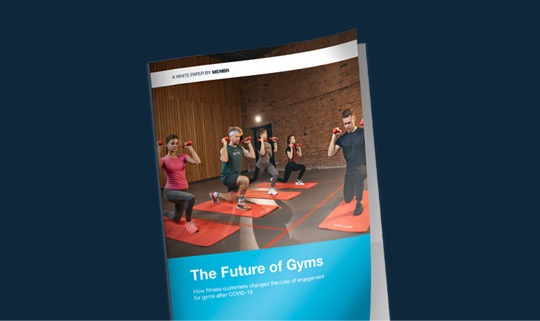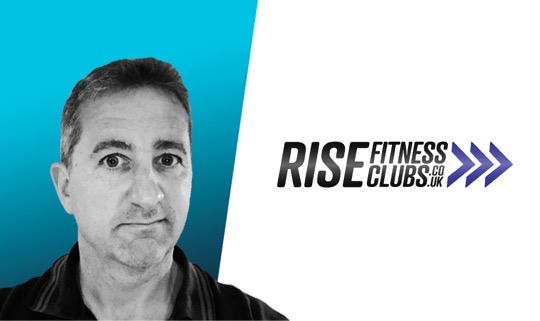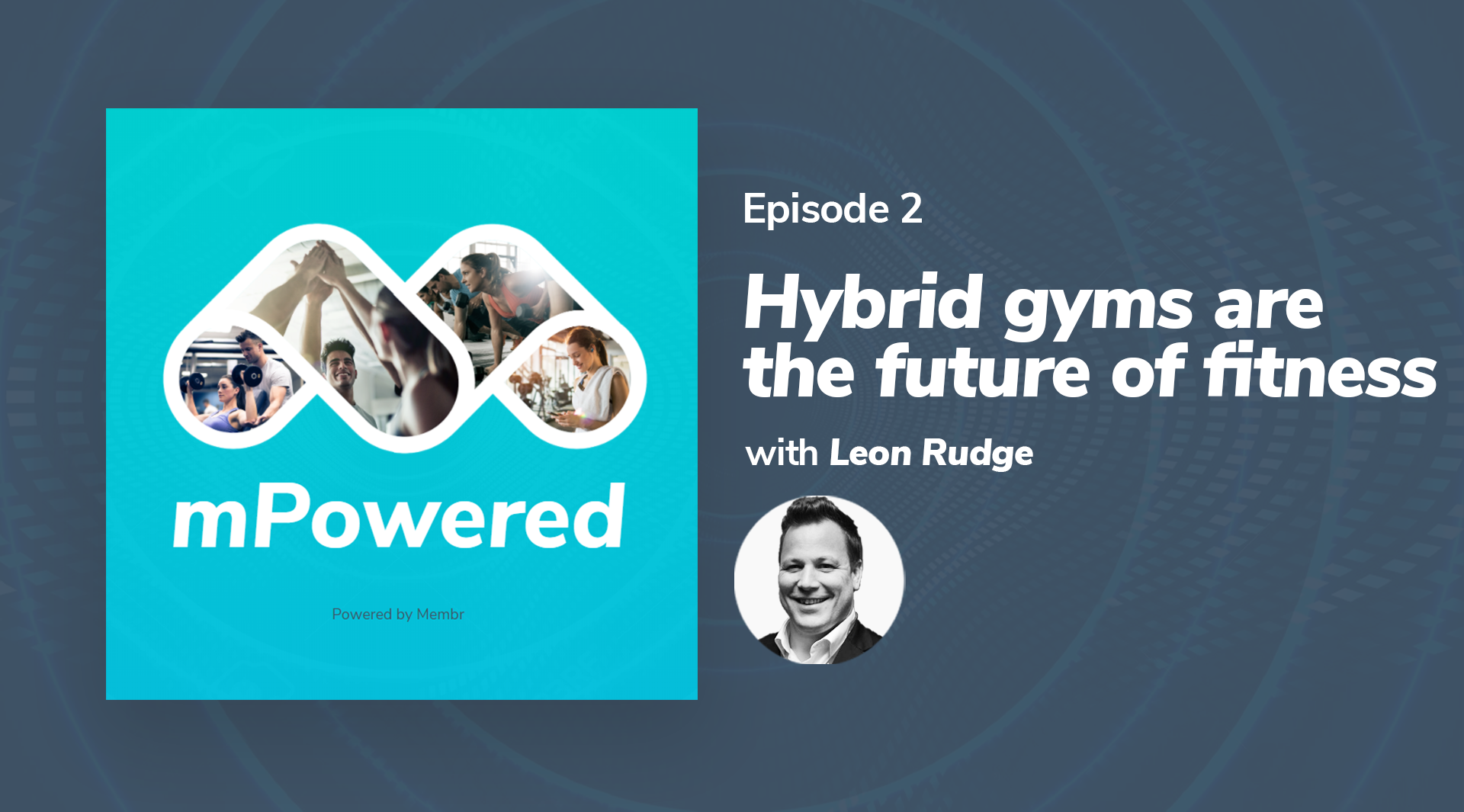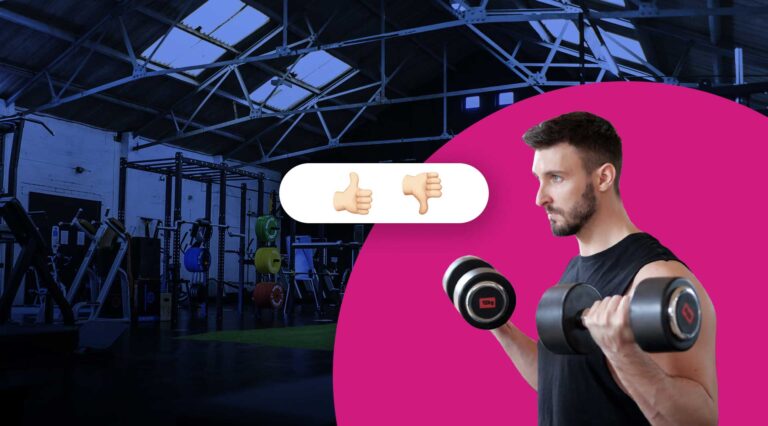Leon Rudge 0:01
If you take what you’ve always done and deliver that through an app, it doesn’t necessarily mean that’s going to bring new customers or retain current customers. However, if you know what you’re delivering to who and why, then there’s a completely different business model there which could drive revenues through digital digital only customers, as well as having hybrid members who are both online and offline customers.
Craig McNeill 0:30
Welcome to mPowered. I’m Craig McNeil. I’ll be your host. What does the future of the traditional gym look like? Can gym owners learn about brand loyalty from social media? How do you keep exercisers engaged during a global pandemic? We started mPowered with a mission to answer those questions and more. Join us for conversations with global health and tech experts around the changes and challenges within the fitness industry. For groundbreaking leadership ideas, and the latest Fitness Tech innovations.
Craig McNeill 1:06
Okay, welcome to mPowered and my name is Craig McNeil at Membr and I’m very glad to say I’m here with Leon Rudge, Director of Digital Experience International at Life Fitness. Hi Leon!
Leon Rudge 1:21
Hi Craig! Thank you for the opportunity.
Craig McNeill 1:23
You’re very welcome. How are you? You alright?
Leon Rudge 1:27
I’m very good sir. I am very good. Gym’s reopening next week in the UK so that’s very pleasing news from yesterday so very good.
Craig McNeill 1:36
Absolutely, there was a lot of buzz wasn’t there yesterday? So Leon works at Life Fitness at the moment, covering the international business for all things digital. Leon is a digital fitness expert. He’s been in the fitness technology space for many, many years, which I won’t mention how many Leon as it gives away your age. Previous to Life Fitness, Leon had an interesting area of expertise of the of digital in different industries, which would be good to kind of understand a little bit more Leon. And in terms of introducing yourself, Leon, do you want to give us a quick – and when I say quick Leon I mean 30 seconds, 60 seconds intro to what you do Leon?
Leon Rudge 2:21
Yes. As you said, I am the director of digital experience at Life Fitness, and which I’ve had the pleasure of being being at Life Fitness for seven years now, so I’ve been exposed to digital in the fitness industry for that long I’ve been in fitness for about 12 years, maybe a little bit longer than that. And, you know, my my role is really to work with the with the industry and with customers to help them understand and navigate this world of the world of digital. I think as you said, I I’ve been in digital and technology for quite some time now, almost two and a half decades, actually, which is incredible. When I think back to the days of writing code by hand line by line, you know, which I think has given me a good sounding board for where we are now in fitness. You know, I’ve been there when we joined ecommerce when we took retail and digitized it. I was there. I worked for a telecoms company when we digitized the telephone networks in the in the UK industry, communications industry. And here we are now in fitness going through a very similar, you know, crazy transition. So over pretty much I’ve been there and done it which is I think is a really good thing and it’ll probably come up on this conversation Craig You know, there’s a massive difference between telling people what they should do and actually doing it and I think that’s where supply side where we are as an industry. So that’s me.
Craig McNeill 3:54
Great insight. Awesome Leon. And something a little bit more fun. Give us an interesting fact about Leon Rudge.
Leon Rudge 4:04
Well I don’t know about interesting. I think probably my sporting activities really not you know, I’m I love to ultra run. So I do several ultra distance events. I love the, I do trail running. I race dirt bikes. So on a weekend, you can find me flying round a track in mud or running through some mud. Love rugby, scuba diving. So I do a lot of diverse sports. But I think the most interesting thing about me is er is my daughter, she is my er, I’m a parent and she’s the most interesting part about me.
Craig McNeill 4:40
Amazing mate. Awesome. And I know a little bit of what you’re doing exercise-wise and I’m always intrigued how people flip from one place to another when you’re when you’re training. I think that’s really exciting as well because if you had one modality for the whole of your life, I’m sure it’d be pretty boring, wouldn’t it?
Leon Rudge 4:59
Yeah, and I think I’m also fairly old. I’m not going to reveal it, but and I think sports like rugby tend to, you know, I mean, I played rugby for almost over 30 years, over 30 years. Yes. So there’s certain sports that you struggle to do as you get older.
Craig McNeill 5:16
Playing 30 years of rugby takes a toll on the body!
Leon Rudge 5:19
Yeah, we’re, the torsos in a in a mess. But there you go, but you know, so conversely, falling off motorbikes at high speeds doesn’t really do anything at my age either. But that that’s not interesting. But it happens!
Craig McNeill 5:32
So in terms of today’s episode, we wanted to talk and it’s a really interesting topic from what you kind of intro’d your background, Leon, in terms of what is the future of the traditional gym, and what is a traditional gym, and kind of to dive in Leon straightaway into into kind of a conversation about this. So there’s a there’s a buzz phrase at the moment Leon. And that’ll be ermm, is, have you, have you got a hybrid gym solution?
Leon Rudge 6:01
Yeah
Craig McNeill 6:03
It’s a, it’s a, it’s a phrase that’s really surfaced to the top of everybody’s lips in 2020. And it’d be good to kind of just dive in with a meaty topic like that. And what are hybrid gyms? In your opinion?
Leon Rudge 6:19
Yeah, it’s a good one actually, mate. And I think before we kick off, I need to put this statement out there that sometimes I can be a little bit controversial, and a little bit challenging towards the industry. So I tend to speak from a general point of view, so most of my statements are general, and I think it’s good to point that out because it’s kind of my role to challenge things really, and words like hybrid are a classic of that. So I don’t know who came up with the word hybrid, I don’t necessarily think it’s the wrong word. But I love it now that hybrid’s become the hybridization of a gym, like we, we love a buzzword in fitness. And that’s super cool, because I think it allows us to really have conversations across borders, across segments, you know, and across suppliers, and be able to kind of have an aligned understanding of what we’re trying to do. But for me, I think hybrids already become confusing. So it seems that people are using the word hybrid to this describe, offering your services both online and offline. Yeah, I kind of, kind of agree with that. But my personal opinion is, it’s much bigger than that, right? So for me, a hybrid gym, or maybe a successful hybrid gym, should actually look at having two business models, you know, and by business model, I mean, something that, a way of how gyms, you know, create and sustain and deliver value. So, what I think what we’re doing, as an industry, some people are calling hybrid taking what we’ve already done, and just digitizing it, but I just call that, you know, a service extension. It’s just extending and enhancing the service we’ve already delivered. Whereas for me, it’s much more about having a separate part of the business, which is much more digital, much more online-focussed, and being able to deliver that, but also deliver so much value with that we’re able to charge for it. So it might be to a different customer base, etc, etc. So I think about this in the form of studio cycling, right. So we’ve always had bikes in studios that we’ve used at, in the morning, at lunch and at night, you know, ran a bunch of studio cycling classes, and then we put digital screens in there. So we could increase the efficiency throughout the day and have a better customer experience. So if I went at 10:30, and there wasn’t a class, I could still go and do a class. That didn’t give us a hybrid studio. You know, we just, I don’t feel I personally don’t feel it did, it just gave us we just extended and enhanced the service by adding a digital element to it. So it gave me a better experience as a member, it gave me an operational efficiency, because I was using my space that I’m paying for, to you know, to deliver my service, and I didn’t necessarily need to put a member of staff in there. So for me, hybrid is more than just online offline. For me, it’s about understanding how we can have, you know, two completely separate business models, but but they’re intertwined. You know, they kind of you know, they work independently and with each other. So that that that was that that’s how I would describe hybrid. The hybrid for me, isn’t digitizing what we’ve always done, you know, but buying an app that does programming, buying an app that does class bookings, or, you know, delivering filming a class and delivering that the home. For me, that’s just a service extension. I don’t think it’s I don’t think it’s really where we need to be in the future. So yeah, that’s that’s kind of how I would describe hybrid – for me, it’s about business modeling, as opposed to just digitizing what we always do.
Craig McNeill 10:05
And do you feel that when operators kind of get into that space, do you think they’ve got a strong overall vision? And then those two business models then plug into that vision? Or do you feel like it’s it’s actually bottom to top? Where they actually find out – the products that they work with will then tailor to their vision? Do you think it’s sometimes the wrong way around?
Leon Rudge 10:30
Yeah, definitely. I mean, we tend to start with the technology. And I’ve said this for years, you know, we start with the technology, and then work out how we can deliver the experience as opposed to saying, right, you know, what do my members want? What does my business need for, you know, as an operationally, and what technology and digital experiences can deliver that, but we tend to say, Oh, you know, great, this software can deliver this, and I think it’s fantastic, and I run the gym, and, you know, it’s something I love. We don’t, we don’t necessarily start with what our members want, or what exp, on the experience we want to deliver, we tend to start with the technology and work backwards to the experience, instead of experience first. I’m quite critical, and I’m quite challenging on that one, you know, I get a lot from what, you know, the other thing for me to say is I’m not an operator, so I never really tell operators and I’ve never operated. So I don’t really try and tell operators how to run their business, I just kind of challenge them to thinking about it in different ways. So, you know, I hear so many times, don’t tell me what my members want, or, you know, my members don’t want X and it erm, you know, and I challenge it and say well prove it? Show me? You know, it’s erm, so we tend to say absolutely, you know, we need to implement this software, but nobody can… the ‘why’ is always, you know, absent?
Craig McNeill 11:54
Yeah.
Leon Rudge 11:55
So yeah. And we’re starting to see that shift now though, if I’m honest with you, Craig. I think, I think this kind of acceleration of digital understanding and awareness through as a result with the pandemic, the covid 19 pandemic, we’re starting to see people look slightly differently. But we’re currently in crisis response. So for me, anything we do now is not wrong. It’s the right thing to do, we’re, you know, we need when gyms are closed, we’ve got to deliver a service to the home. So, you know, whatever that takes, and as quick as you can get it done, you know, there’s, there’s no right or wrong now. It’s about, you know, crisis management for me.
Craig McNeill 12:34
Absolutely. And I think, (yeah), I think even more than ever, we realize that memberships add more than just the physical nature, you know, it’s a community, it’s a thing, you know, it’s an extended friends or extended family where members are not just a member to a gym, for the the physical nature of going to a studio or going to a gym floor and doing what they need to do to keep themselves fit. It’s much bigger than that. I think, going back to your message there, I think it’s important to understand that the services that we need to offer our members are already in multiple streams, already are. And the heightened digital experiences definitely come to the surface. So leads me on to my next question really, which is an interesting one in terms of generations using technology, and being with an older adult, at the moment, Leon, sorry? (chuckles) What, what’s your view of how different generations react to digital solutions? Specifically in fitness?
Leon Rudge 13:45
Yeah, I haven’t seen any recent data on that, so it’s a bit of a tough one to answer. But, you know, there’s always been this misconception in fitness that, you know, older adults, for instance, don’t use technology. But they do. But and I’m not really, I don’t know, whether when we look at Fitness technology and digital offerings, I don’t, I don’t know whether we need to look at it in terms of age, as opposed to location, you know, maybe that more, you know, more location aware, and even activity that I don’t I don’t necessarily think we have different people doing different things, you know, different generations doing different things when it comes to digital, you know, good great examples would be, you know, in the UK with Joe Wicks running PE with Joe, you know, the parents did it as well as the children. So, I think I don’t, I don’t think I don’t, you know, I’m a big fan of data, a big fan of validation, haven’t seen any current data. But I don’t think there’s different attitudes towards it. I’m sure that different generations I know we have as a parent, different generations will use different applications, but I don’t necessarily think the content’s directed at different generations if that makes sense. So you know, in the absence of data, I would say that I don’t think there’s a different attitude towards digital fitness. But maybe where it’s delivered would be the difference, you know, so said differently, maybe, you know, for the older adults it’s easier to deliver it to a television, for instance, because it’s the modality that they’re used to, but maybe, you know, and they don’t want to look at a small screen in landscape, whereas, you know, if it’s a younger adult than they’re, they’re probably more comfortable with holding the screen and propping it up and throwing out half an hour of Tiktok dances. So I think I think that’s the only difference is where you would deliver that. Possibly.
Craig McNeill 15:42
Yeah. So and that comes, that kind of comes back round three sixty doesn’t it in terms of what is the value that you’re looking to add here? (Right) Ultimately, all comes back to that, and then that, that comes back to the who, and then that comes back to the how. So? Yeah, it’s that pyramid, isn’t it?
Leon Rudge 16:00
Yeah. And it all goes back to that. And I think that, you know, the big message there, Craig, and I, you know, I’m sure you were alluding to it is that digital is not the not not the first answer, you got to get your physical business, right, before you get your digital business right. If that if you if you were a gym, for instance. I mean, if you’re an influencer, your your your your business is your digital business. But you know, I think I think with gyms, if you think about it, you know, we we look at activity as as the weights room and as cardio, etc. But there’s much more you can deliver, you know, sorry, in the studios, but there’s much more that we can deliver via digital. And if you look at, you know what some of the influencers are doing whose use have just gone through the roof, you know, most of the stuff is bodyweight. So a lot of it is about, and this goes back to the hybrid model, if you take what you’ve always done and deliver that through an app, it doesn’t necessarily mean that’s going to bring new customers or retain current customers. However, if you know what you’re delivering to who and why, then there’s a completely different business model there, which could drive revenues through digital, digital only customers, as well as having hybrid members who are both online and offline customers. So it’s massively about who you’re delivering it to. But we just tend to build apps, as you know, operators build apps as they would like, like the app to be built, you know, what the experiences they would like it and then expect their members to like it.
Craig McNeill 17:30
Yeah, which becomes more risky. Just changing topic a little bit Leon, I want to talk to you about a little bit more of the skill set from the fitness professionals. So we can we can dip into fitness professionals now needing to be more confident in front of camera, we can talk about how fitness professionals are trying to educate that user to become more digital. So back in my day, my my level two level three gym assessments was all about the safety of the machines in the gym floor. So make sure we can step on the treadmill from the side, making sure that we’re going to hold on to the side of the screen, make sure that the conveyor belt, the conveyor belt is is not moving and make sure you stand in the center of the treadmill. Okay, so, um, basically that was the that was the introduction of a gym floor session. And that was that was and still is relevant to a certain degree. Do you feel like fitness professionals are moving with the speed of what we need to take our positioning of, not only do we need to show them how to stand on the treadmill safely, we might have to show them how to download a mobile app on an Android device. And I’m Apple user. So I’ve got to be I’ve got to be comfortable in, in showing a member how to download an app on Android. (Hmm) There’s not a qualification for that within the syllabus right now.
Leon Rudge 19:00
No, and I’ve been mega critical of that. And I will be because, you know, we we have a bunch of training organizations globally, that are responsible for giving personal trainers and gym instructors the qualifications to be able to be in, you know, in our facilities and train or train our members, but there isn’t anything in there that actually brings them up to date. And for many years, you know, I’ve been to international standards meetings, I mentioned it. You know, I’ve sat with the biggest training providers and mentioned it and we still don’t really have anything that’s part of the syllabus, and it might not need to be part of level two or level three, y’know personal trainer/gym instructor syllabus, but it you know, it definitely could be something about CPD, you know, we still have trainers. Sorry that’s continued professional development. So, but we still have trainers that see digital as a risk. We still have trainers saying I’m not going to you know use that with my members, because it will replace my, you know, replace my job. And it’s an it’s simply not true. You know, if you look at, there’s examples of that in history of how technology doesn’t replace jobs, you just retrain people to do other jobs. You know, Amazon, for instance, for every 200,000 robots they put in, they employ 100,000 people, you know, when we put pneumatics into digging holes in the ground with JCB’s, you know, with plant machinery, we didn’t take the people with the spades digging the holes, we trained them to drive the the diggers, you know. So there’s lots of analogies and lots of things. But say from a trainers point of view, really is for me, it’s just embracing it, Craig, because the science doesn’t change, right? The the science of health and fitness, strength training, insurance, you know, what, it doesn’t change it, but I think we got to get used to the future is we’ve got to get used to people coming to fitness facilities, using big tech apps, big tech wearables, startups, you name it, you know, there’s that it’s impossible to know every single app on the App Store now. So you got to be comfortable of almost making, you know, light work of it and sayin’ Come on then, give us it What are you used? And let’s take a look, and how can I communicate with you on this? How can I see what you’re doing? And actually spending a session with your, with your client and going through what do they use and saying, Look, and being confident enough to say that I don’t think this is going to work for you. I use Strava, I use My Fitness Pal, let’s switch it out, or I use this app. Let’s switch it out and a lot of it’s down to confidence. But but just understanding and not every trainer needs to be an influencer, not everyone who is not every train, it seems to strive to want to be an influencer. I think trainers can put content, anyone can put content out. And that’s fantastic. But they don’t need to strive to be having hundreds of thousands of followers because that’s not what we necessarily need as an industry and you know, and so we didn’t, we didn’t need to strive not trainers don’t need to strive to be to be influencers, but they just need to be more aware, they need to embrace it. And as I said, the difference between, you know, some of the apps and the wearables is that the trainers have got the education to interpret the results, and do that with empathy and do that with emotion, etc, etc. So that’s what they really got to work on. But I still walk into a gym now. And the first thing I say is where’s the gym team? And they’re, they’re having a coffee or flicking through Facebook, they’re, you know, we do need a mindset change. And again, general statement. But we do need a mindset change with that.
Craig McNeill 22:50
Maybe Maybe this is a this is a carrot rather than a stick. This is the carrot. Well, you just pull something out there isn’t it? The data that we now can talk about? Is it Yeah, is is in our fingertips. Like you you go for a run over the weekend. And I just come and approach you on the gym floor today. Without without too much investigation, we can find out exactly all the data that you did over the weekend, if you if our conversation wants to go there. And we can have a really good meaningful interaction and coaching session there right away about what you did on your run. I noticed that you did x, how did that feel? Okay, yeah, takes you into a place where I’m actually coaching you, outside of our normal remit. And that’s where the magic happens. So yeah, that’s the carrot isn’t it? That’s where we if we if we get more education across to our fitness professionals about how they can utilize this information rather than it’s something that actually is challenging your information, it then becomes a huge opportunity that we can get excited about because my passion about kind of coaching and helping people is all about doesn’t matter what I think they should do. It’s all about giving them the power, where they want to get to and where that’s where those are. And that’s, and I guess that’s where the power of, of apps, and technology comes into it into its own.
Leon Rudge 24:20
Yeah, I totally agree with that. And I also think, I don’t know why we just limit that to the trainers, right? So I don’t know the numbers. But I wonder how many people ring up a gym and say, I’d like to join, or I’m interested in joining. So, you know, when they come into the gym or even on that phone call, why not get them downloading the app and saying, Hey, you know, what I’m going to do is you download the app, set up an account, even though they’re a prospect coming to join your physical gym, get get them on the app straightaway. And say I’m going to assign you Craig as a trainer, you’ve told me that you want to run you know, get fitter you and you and you want to run a 10 k, so I’m just going to assign you Craig and we’re just going to put you on the app for a month anyway. So we can see what your habits are, see how you’re working with fitness, you know, Craig will be in touch every day, you know, so so we’re almost grabbing the attention digitally of a prospect from the moment they say, I want to live a healthier life, you know, to the point where they say, I’m going to leave the gym. And you said, well, hang on, let me just, that’s fine. Absolutely, we understand, notice in, accepted, accepted, but let me just assign you Craig as a as a gym member, we’ll keep an eye on your habits. So you catch him on the way out so you can begin to bring them back in. So I think there’s, I think the challenge with fitness is that, again, general statement, but when people decide to get fit, they think about either going for a run or lifting weights. And there’s so much more in between those that is called activity that gets the general population more active more often, right. So more people more active more often. And they but we tend to just treat those people as a sale, we want to acquire that member, get them into the gym, keep them for as long as we can and hope they just get on with it. Whereas if you look at apps like Noom, which is this new kind of behavioral change weight loss app, they assign you a goal coach, you know, so if you don’t open the app, the goal coach will and it’s a human, there’s robots in there as well, just to add to this, but there are humans, which pick up where the robots leave off. So the robot might remind you to open the app three times and then a human steps in. So you know, we can’t expect everyone in the population, everyone in the population to just join a gym and love it, we’ve got to, we’ve got to nurture these people and change their behaviors. And the best way to do that at scale is via an app. So I don’t know why we just constrain it to programming and class bookings. Because all we’re doing there is a little bit of self service and a little bit of convenience. And there’s so much more to digital. So, you know, and that’s just one example of how we need to think much further than our current, you know, relationship with a turnstile. So, you know, it’s, you know, with the, with the door access. So when I think about hybrid models, that’s I think, much more than just taking our service and extending it with digital. Because there’s so much more you can do with digital, and it’s, and it’s about, so, so not just that. So we started that this con- part of the conversation talking about the trainers, it’s not just the trainers, it’s everybody in the organization, it’s the marketing team thinking about how that content can be contextual, and where to put that, it’s about, you know, it’s about the sales team getting straight on with the app and onboarding people. And it’s about trainers executing, right, and we need to incentivize them to do this. Because, you know, it trainers, we need to make sure that the trainers are engaging with the apps and with the data to be able to, to to, you know, to, to be able to use it for the benefit of the business and the members. And that needs incentive, because they’re not, you know, that they don’t even walk around the gym and say hi to people. So to think we’re just gonna get them from not even saying hello to interpreting data in an app and engaging with members via digital, we need to find out how we fill that gap. And it’s probably down to some kind of incentive. So said another way we work with a number of organizations on their digital transformation and their implementation of software, two totally separate things. And they need to put KPIs in there to make sure people are engaged in it. And that runs from the telesales team, right the way through to senior management. If you don’t embed it in your business, it becomes a fringe tool, and it just doesn’t get used.
Craig McNeill 28:58
Yeah, absolutely. And you’re getting into the the foundations then aren’t you and that’s the that’s the incredibly important area that you need to get that involved in.
Leon Rudge 29:09
Yeah. And that’s, sorry Craig that’s what I mean about hybrid like, digitizing our businesses we should have done years ago. So when we talk about hybridization, and you know, and digital transformation, I get a little bit frustrated about it, because rolling software out isn’t digital transformation. You are just digitizing the convenience of your, so if you’ve got a service that’s repetitive, you can digitize it. And that’s what we’re doing so that we should have done that years ago.
Craig McNeill 29:39
Yeah. And digital is just not workouts. It’s much more than that.
Leon Rudge 29:44
Yeah
Craig McNeill 29:45
The brand. So kind of a really kind of good place I want to take you to in terms of what we just kind of touched on slightly there is how does gym owners look at this with a budget, obviously, in terms of budgets-wise, we’ve probably got less than we’ve ever had in terms of purchasing new, new products over the next couple of years, we need to we need to think about how we spend every penny, how can we innovatise as a gym owner with digital on a budget?
Leon Rudge 30:22
Yeah, good question. I guess it I guess when we say budget, it also depends on how big that journey is, you know, so where does the digital kick in so if you are just looking at programming, and you are just looking at class bookings, really all you’re doing there is saving yourself a, you know, a few dollars and pounds and euros by just creating an operational efficiency and making something a bit quicker. So, it when we’re talking about budget, depends what the outcome is. And, you know, if it’s going to bring you members, then your budgets higher, but if I, I mean, if you look at software that does programming, and class bookings, etc, which is, you know, the most common in our industry, you know, you could be looking at anywhere, you know, up to $200 a month, 200 Sterling 200 euros, you know, and to be able to offer a service of convenience and communication to your members. You know, that’s not, you know, not particularly when it comes to software, that’s not particularly, you know, cost prohibitive, it’s, you know, it’s good value, but then I think about, you know, and that’s kind of stuff that just digitizes what we’ve already done, but then when I think about things like, you know, this new content, etc, etc, you know, I’m a massive fan of, in order to do it on a budget, you’ve got to learn first. So don’t just go out there and, you know, ring up every supplier on the planet and say, come and show me what you’ve got, because I want to buy something, you know, you’ve got to know what you’re buying, and why you’re buying it and for whom, so, you know, there’s loads of testing you can do out there. And I’ll give you an example. So if you look at content at the moment, being delivered to the gym floor delivered to an app or being delivered to a TV, there’s some really big content providers out there, which will allow you to add some content to them, that would allow you to test and learn what works for you and your members and what doesn’t. And a little example I can think of is YouTube. So you know, when you look at delivering content, what why not just brand up, you can brand up your YouTube channel, heavily branded. And it’s got the biggest analytics company on the planet behind it, which will allow you to a/b test in the segment, you know, some really powerful tools on there to understand what you’re delivering to who. You can use, you know, really low cost things like iPhones, or low cost cameras to shoot content. And, you know, upload that content to YouTube, and just try it with a sample of your membership to learn. You know, so there’s, and that costs you nothing. That will cost you absolutely zero. You know, so when you’re looking at, okay, do we need to create content? Where do we need to deliver that? You can just use YouTube. And, and I sometimes struggle a little bit between what is the difference between that and some of the products that are actually on our marketplace, other than aggregating licensed content and delivering it through a screen? There’s no real difference between that and the YouTube. And you know, you’ve only got to go onto YouTube and type No Gym, No Problem. And I think the last count was over 6 million results or something like that, it’s huge. There’s workout workout. I mean, about four years ago, three or four years ago, I had a presentation, Craig called erm Digital Predator Digital Prey, which was kind of calling out the need to continue to look at digital. And the whole theme of it was no gym no problem. You know, and we, you know, we talked about having these hybrid models, or at least digital models that we could make, generate revenue from while delivering service of value to customers, and also called out how the big techs were all doing this, you know, even at the time then you could say to Alexa, two or three years ago, you could ask Alexa for a workout and it would deliver one you know, conversely, you would ask Alexa, where was your nearest gym and it wouldn’t give you one. So they were delivering workouts but we weren’t engaged in it. So I digress slightly, but there’s lots of ways of you know, even things like that, Craig, just having. So Alexa, I think still uses the Bing database which nobody uses? So when when I say to my, (I don’t want it to hear!), when I say to my Alexa, where’s the nearest gym? It, it will read the Bing database. But we’re still obsessed with Google. So, you know, there’s little little things like that that cost nothing. And I think if you sit down, and this is all about strategy, right? It’s about sitting down and going, right? Where are we now? How do we create innovation to create new and next, and where are we going to go in the next 12 months and don’t rush? Like, you don’t need to go out. And we’ve seen some multimillion pound failures in the fitness industry that nobody really talks about. You don’t need to rush. So when we talk about budget, you know, obviously, budget is relative. But we need to make sure that whatever we do, we know why we’re doing it, and who it’s for. And it doesn’t have to, and the biggest one is learn. We have to collect and validate what we’re doing, and why, before we do it. Otherwise, you’re just implementing technology and digital for technology and digital’s sake. And so for me, I’d rather spend six months learning before we invest,
Craig McNeill 36:17
Invest more wisely.
Leon Rudge 36:19
You want, and yeah, you do and you don’t, you know, and the other thing is, this stuff supersedes really quick, you know, like, things go out of fashion, member’s habits change, you know, and you can kind of see that in social media at the moment, they’re all kind of scrambling for the attention of the, you know, they’re and they’re all putting stories out now, because they’re all scrambling for the attention. And that’s just down to the way, you know, user’s habits change. And, you know, a great example is if you look at Facebook 10 years ago, and you look at Facebook now, it’s completely changed. But you didn’t notice it, because they’re constantly moving it towards, you know, user behaviors. So whatever you buy now is, you know, is going to supersede so you got to build digital, you know, into your into your budgets, but you’ve got to know why you’re doing it. Otherwise, you’re just going to waste money permanently.
Craig McNeill 37:17
Cool. Some really good kind of topics there Leon and I appreciate, we got into a really good kind of detail of those topics, which was exactly what we were looking for, I knew, knew you’d have some really good insights to those kind of topics. So to kind of wrap us up, a, something that we’re going to be doing on every episode is give us your biggest takeaway from everything that we’ve just been talking about on the podcast, and kind of just as a summary, I’m going to phrase it What would be your biggest takeaway Leon from from today’s conversation?
Leon Rudge 37:54
Oh, there’s so many
Craig McNeill 37:56
Aww, just one, you can’t have two or three. Just one. What is it?
Leon Rudge 38:00
I think, for me, it’s just, it’s really focusing on why you’re doing this. So the strategy, the strategic side of it. So you know, don’t get wrapped up in buzzwords, don’t get wrapped up in supply-side reading books and telling you what to do. Make sure that you bring digital into the core of your business. And make sure it’s strategic. And every decision you make, whether it’s to create an online business, or a digital business, and an offline business, or your current traditional business, whatever decision you make, make it strategically. Don’t make it because you think it’s a good idea, validate it, test and learn. So if it was anything it would be to definitely do it. But do it strategically.
Craig McNeill 38:49
Awesome. Woooh.
Leon Rudge 38:51
Well, that was a sign bite you can use.
Craig McNeill 38:54
And it’s a great takeaway, because it’s the hardest part. But yeah, you’ve got to make sure that you, you do that, because everything else then will become easier. Every decision below that big meaty, difficult session. sessions. Yes, journey that you go through. It’ll make everything easier, because then you’re quantifying back to that.
Leon Rudge 39:18
Yeah, you know, you’re bang on mate and you know, if you spend an extra month of learning, it will save you years on the back end. And you know, the big the biggest thing for that is, we talk a lot about customer experience and customer journey, but we never involve the customer. So as fitness operators, you can’t decide what’s good for your members without talking to your members. Like it’s not your opinion. It’s, it’s theirs. So spend a little bit more time with your customers, you know, and not just research actually spend some time with them, whether it’s ethnographic whether it’s focus group, whether it’s digital research, spend some time with with your customers. So when your customer experience includes your customer.
